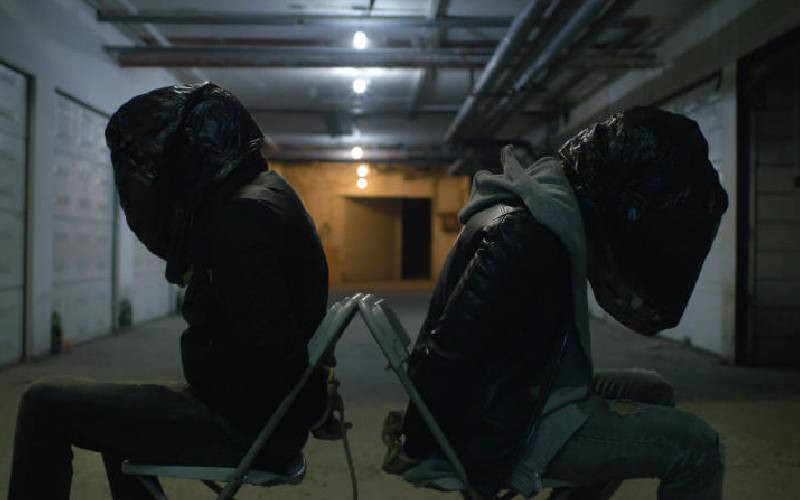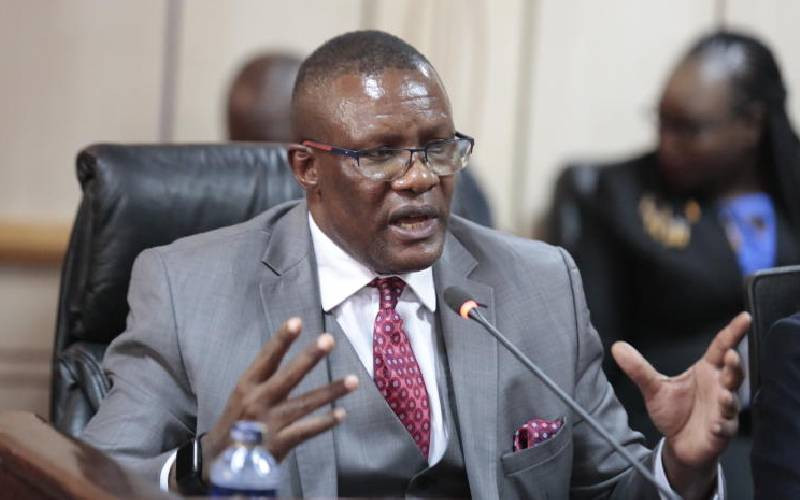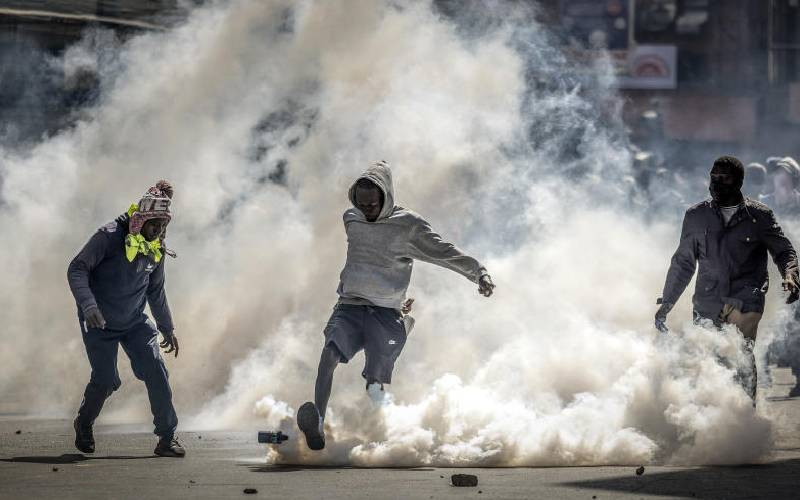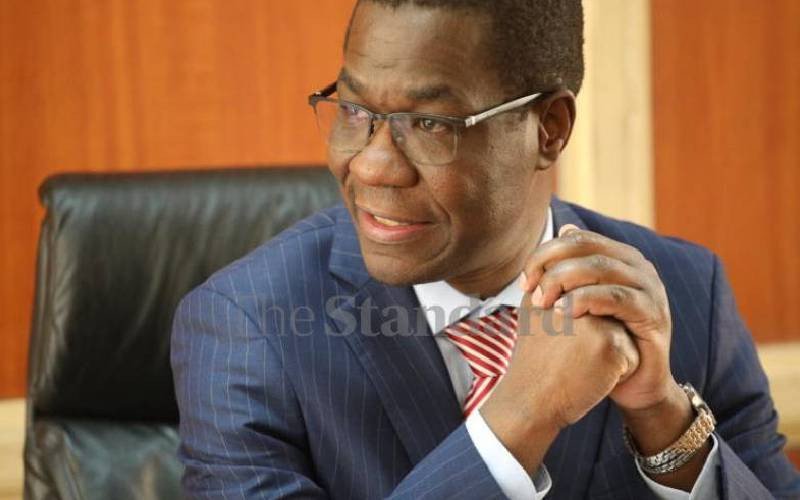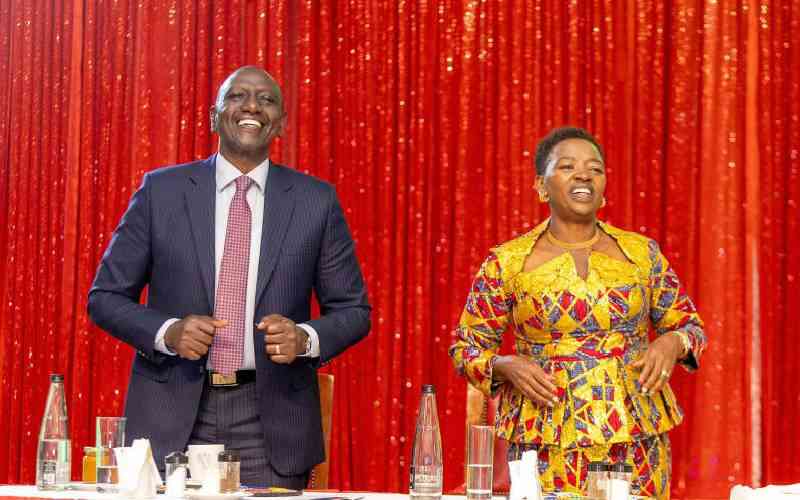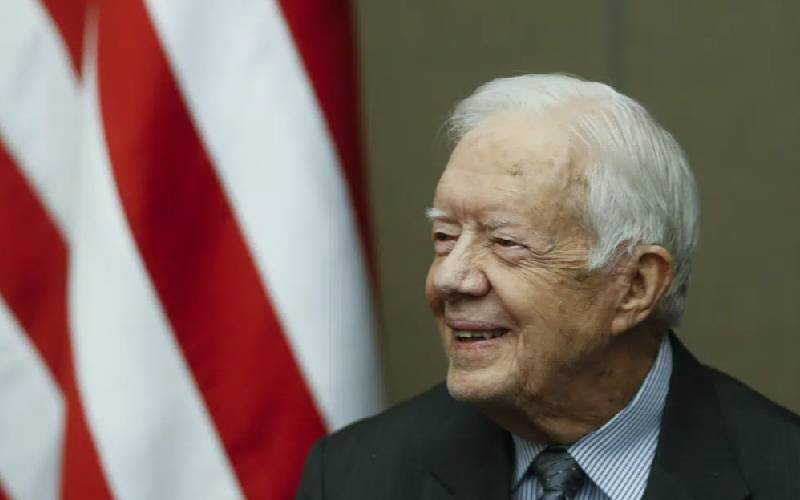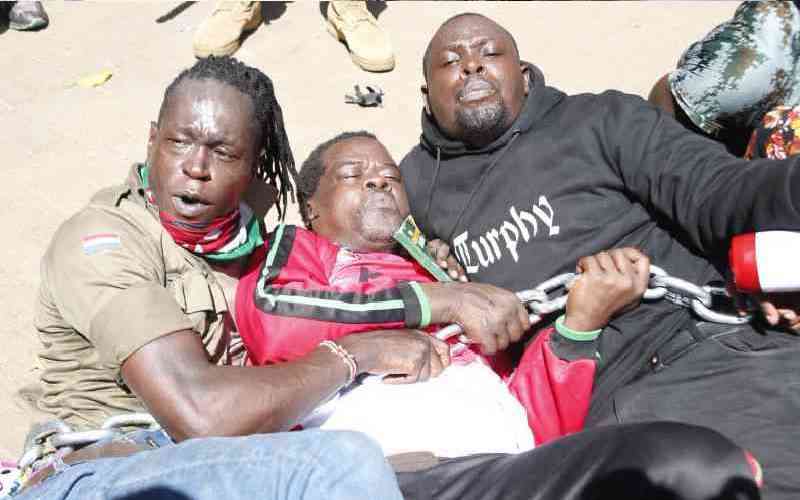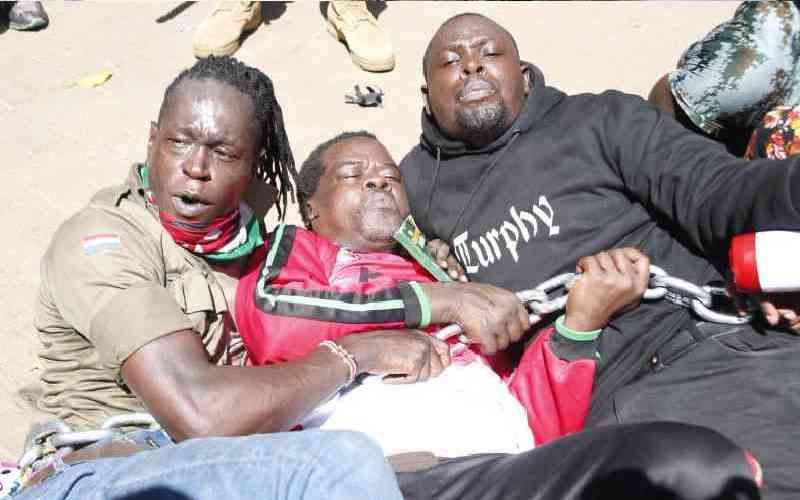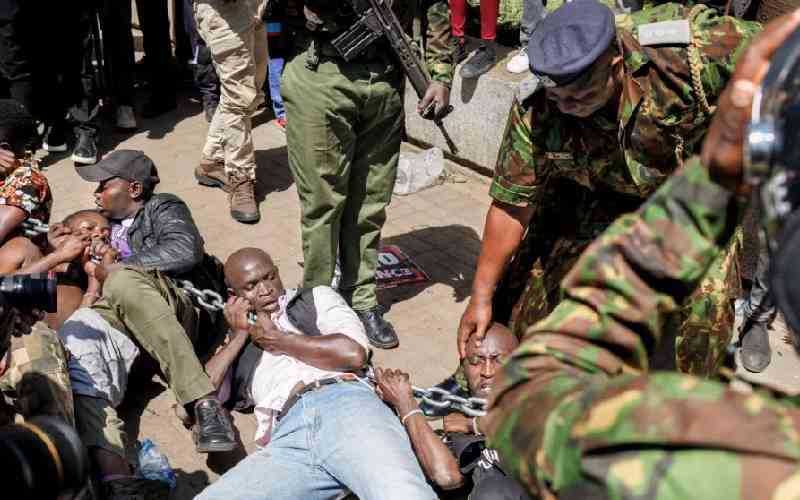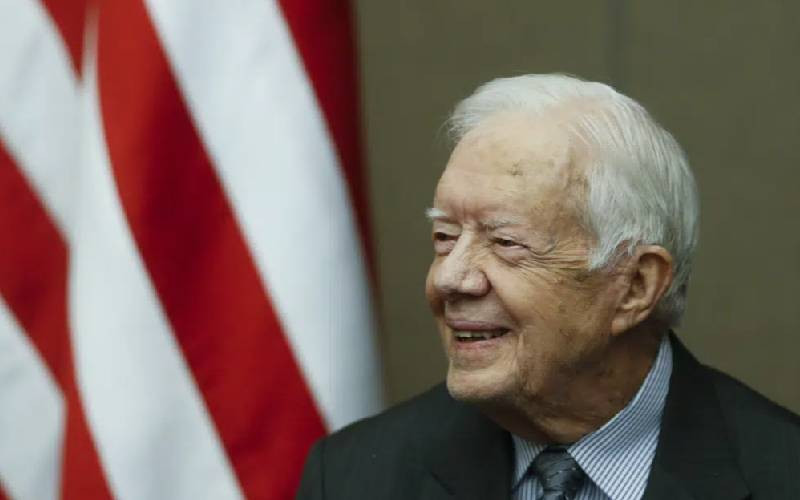
I was delighted. The tension and fear that had seared through my body vanished. The arena burst into sudden screams of joy, song and dance. I walked round shaking hands and hugging my supporters and members of my strategic team. After months of countrywide campaigns, I clinched the presidency of the Kenya Karate Federation.
I turned to my left and, lo and behold, there sat my main challenger. He was sobbing uncontrollably. He was a heap of misery, forlorn and in deep shock. His whole body was drenched in sweat. His groggy legs couldn’t hold him and his aides had had to help him to slowly fall onto an empty seat. I later learned that he went into shock because of the huge amount of money he had spent on the delegates, only to be rejected at the ballot.
I vividly recalled the pain on his face when I learnt about the demise of America’s former president Jimmy Carter. The 39th President of the US, left the White House with his popularity in tatters.
Carter was 56 when he was humiliated at the ballot on his second attempt at the presidency. He too, like my challenger, must have been shocked. The conservatives accused him of giving away the Panama Canal. Southern Whites were infuriated that he empowered the Black race. The rest of America was annoyed by his reluctance to deploy the military against Iran over the 444-day hostage crisis at the US embassy in Tehran. Between November 4, 1979 and January 20, 1981, 52 United States diplomats and citizens were held hostage in the Iranian Capital. Angry Iranian college students who supported the Iranian Revolution conducted the siege. Carter had resisted the military option and opted for negotiations. He argued that a military response might have led to the death of the hostages. The resistance was seen as a sign of cowardice.
Jimmy Carter’s death, at 100, made me reflect upon the many lessons, our leaders can draw from his lifetime achievements. It also reminded me that Kenya and the US have many historical similarities. We share deep history of tribal, (read race for the US), and class hatred and inequities.
Peter Baker, in his December 29, 2024 article in the New York Times says: “Jimmy Carter left office in 1981 as one of the most unpopular presidents in modern times; defeated in re-election and seemingly doomed to be remembered by posterity as a failed commander in chief with little to show for his four years in office”
However, Nancy Mitchel, a professor of history, says there is a lot Jimmy Carter did, especially in Africa, that he remains unappreciated for.
Jimmy Carter was a deeply religious man who believed in promoting love and peace among people of all races. If he had been re-elected for a second term, the world would have known more peace. Those who succeeded him plunged us into deadly wars sparking global terrorism that still rocks the world.
Yet, it is his pacifist nature that Americans rejected and the world ridiculed. His deep Christian belief cost him his second term.
How I wish, Kenya’s founding fathers had an iota of Jimmy Carter syndrome in them. Our forebearers lay a foundation based on greed, corruption, tribalism and destructive politics.
Richard Hughes, in his book; Capricorn: David Sterling’s Second African Campaign, says thus about Kenya:
“Immediately before and after independence, when politicians sought election by appealing to their own people, the destructive force of tribal antagonism became, and remains, extremely damaging to stable government.”
The government of Mzee Jomo Kenyatta cultivated, planted, weeded and watered tribalism. Subsequent administrations have faithfully followed in his footsteps, cementing it into a rocky foundation.
Charles Hornsby, in his book, Kenya: A History Since Independence, argues that the country’s history “has been a story of endurance, of political and economic structures inherited from colonial days of unfulfilled promise and weighty historical baggage.”
Unlike Jimmy Carter, who hated racism from the pain and suffering he saw blacks enduring while growing up in the South in the 1920s and 30s, Jomo Kenyatta and his ilk, were not moved by the brutality of the colonialists against their own people. Instead, they reengineered and reimagined the torment, torture and humiliation of their own black race.
Hornsby says that a health scare that Jomo Kenyatta suffered in 1968 sparked deeper tribalism with the fever of his succession gripping the leadership.
Kenyatta had survived a first stroke in 1966. Then on May 4 1968, he was hit by cerebral thrombosis during a trip at the Kenyan coast.
“His concentration was intermittent and he increasingly focused on internal affairs. He continued to make key appointments and major decisions, but power began to move gradually into the hands of those close to him. These included Moi, Njonjo and McKenzie amongst the pro-British group and Koinange and Gichuru, amongst those inclined to a Kikuyucentric view,” says Hornsby.
Tom Mboya had to die. He had become a threat to the Kikuyu mafia because he “offered a fresh faced alternative to the acquisitive behaviour and ethnic agenda of the Kikuyu elite.”
It is no wonder that after the assassination of Mboya, Kenyatta’s closest allies reverted to their ethnic bailiwicks:
“There had been reports of oathing as early as December 1968, to force Kikuyu voters to return sitting MPs in the election. Delegates of Kikuyu and later of some Embu, Meru and Kamba were taken in their thousands to Kenyatta’s house in Gatundu to take ‘tea with Mzee’ and to swear oaths to keep the presidency in the ‘house of Mumbi.’ Since then, some Kikuyu leaders have believed the lie that the community has the ‘sole right and ownership of the Kenyan Presidency’.
Kenyans were extremely hopeful when Mwai Kibaki came in in 2002. Many said he was highly educated and therefore above tribalism. Within a short time, Kibaki proved Kenyans wrong. There was no Jimmy Carter in him either.
In his autobiography, For the Record, Aden Duale tells of the revulsive effect of tribalism. He says; “The kleptocracy of the Kibaki Administration…was revolting. There was a sense of blatant tribalism that made people cringe. I had had conversations with Raila Odinga and some of his friends about just what was wrong in the government, and had an insider’s view of how individuals can fight an entrenched system, and how the system fought back to keep power, to maintain the status quo”
Duale says that it didn’t help that “we had seen a lot of tribalism in government appointments, to an extent that senior ministers whispered to journalists about the existence of a Mt Kenya Mafia”, a powerful cabal around Kibaki.
What was happening in the Kibaki administration had happened in the Kenyatta and Moi governments. While Jimmy Carter empowered and elevated his Vice President and his office, Jomo, Moi and later Uhuru Kenyatta and William Ruto, trampled upon their deputies. Moi would be in a Cabinet meeting and Kenyatta’s close allies would start discussing policy issues in their mother tongue in total disregard of non-Kikuyus.
In his autobiography, Riding on a Tiger, former Vice President Moody Awori says, that ministers from Kibaki’s tribe would rudely barge into meetings he held with the President and, without excusing themselves, proceed to address the President in Kikuyu. These were Moody’s most humiliating, dehumanising and disrespectful moments.
Duale says that “aspects of what some scholars have dubbed Kikuyu hegemony filtered into the public when ministerial appointees in government agencies turned their offices into places where they spoke the Kikuyu language without care.”
The tribal hegemony extended through the Uhuru Kenyatta and William Ruto regimes. No wonder, former Deputy President Rigathi Gachagua, shamelessly chose to propagate for the rights of only one community, his people from Mount Kenya, the Kikuyu.
Jimmy Carter, a former US Navy officer, campaign slogan was “I will never lie to you”. He ran for presidency, determined to restore moral leadership to the White House. When he took office in 1977, his first act was to pardon Vietnam War dodgers. Many Americans, including boxing legend Mohammed Ali, suffered incarceration for opposing the war in Vietnam and refusing to join the military. Carter then elevated and empowered the Vice President’s office by giving his Number Two, Walter Mondale, an office in the West Wing and involving him in policy decisions.
Carter became the first US president to emphasise the importance of renewable energy. He even installed solar panels on the roof of the White House. He prioritised the employment of Black people, women and civil rights activists in his administration. If Kenyatta and Moi had done this, today, most Kenyan communities would have had an equal say and stake in government and national politics.
Carter then normalised the US China relationships and reinstated the control of the Panama Canal to the Panamanians. For a long time, the canal had been a source of resentment and hostility between the US and Latin America. He defused the boiling anti-US sentiments.
He then brought peace between Egypt and Israel after 40 years of conflict and hostility. After the White House, he established the Carter Presidential Centre. The centre focused on peace and conflict resolution, health and election monitoring. Carter and his wife Rosalyn Carter travelled to more than 100 countries dealing with conflict resolution and election monitoring.
In 1985, he launched a campaign to eradicate the guinea worm disease which had afflicted millions across Africa. He fought against river blindness and trachoma. Yet, he still found time to write 20 books, among them a novel and an anthology of his poetry.
“We believe access to healthcare is a human right, especially among poor people afflicted with disease who are forgotten, ignored, and often without hope. Just to know that someone cares about them not only can ease their physical pain but also remove an element of alienation and anger that can lead to hatred and violence,” he once said.
At 95, Carter still taught Sunday school in the small Georgia town where he grew up. Every week, thousands would troop in from all over the world just to listen to him.
Carter once told his biographer, Peter Geoffrey Bourne that:
“If I had not been born Baptist, I would probably have become a Mennonite” (The Mennonite Church is one of the historic Protestant “Peace Churches” dating from the 1500). Bourne is author of Jimmy Carter: A Comprehensive Biography from Plains to Post Presidency.
Bourne says Carter ”…was by most measures a highly successful one term president, getting more done in four years than most presidents accomplish in twice the time.”
In 2002, Jimmy Carter received Nobel Peace prize for “his decades of untiring effort to find peaceful solutions to international conflicts, to advance democracy and human rights, and to promote economic and social development.
For Africa, Carter did more than was attributed to him.
A year before Carter became president, Cuba’s Fidel Castro deployed 36,000 Cuban troops to Angola to protect the leftist MPLA from South African invasion. The Cubans remained in Angola until 1991. At that time, South Africa was a hot political epicentre of the Cold War era.
The Carter administration assembled a high-powered negotiating team, led by UN Ambassador Andrew Young and Secretary of State Cyrus Vance, to coordinate with the British and hammer out a settlement. The negotiations led to the Lancaster House talks in Britain, and the 1980 elections and black majority rule in an independent Zimbabwe. He also recognised the Patriotic Front, a leftist guerrilla movement supported by Cuba and the Soviet Union, as freedom fighters. The group had been shunned by his predecessor Gerald Ford.
Bolster democracy
For the 40 years after his presidency, Carter focused more on Sub-Sahara Africa, with the Carter Center saving over 80 million Africans from the devastating guinea worm disease. He helped bolster democracy on the continent through election monitoring and conflict resolution programmes.
Professor Nancy Mitchel says:
“Carter’s work in Africa and especially in Zimbabwe form a significant and underappreciated part of his impressive legacy.” Carter spent a good amount of time fighting racism and end of white rule in Rhodesia and bringing about the independence of Zimbabwe.
The Carter Center is guided by the principles of its founders, Jimmy and Rosalynn Carter. It was founded, in partnership with Emory University, on a fundamental commitment to human rights and the alleviation of human suffering. It seeks to prevent and resolve conflicts, enhance freedom and democracy, and improve health.
His work has furthered avenues to peace in Ethiopia, Eritrea, Liberia, Sudan, South Sudan, Uganda, the Korean Peninsula, Haiti, Bosnia and Herzegovina, and the Middle East. It helped to establish a village-based health care delivery system in thousands of communities in Africa.
The Carter Centre also advanced efforts to improve mental health care and diminish the stigma against people with mental illnesses.
If our leaders; from the founding fathers, to the contemporary ones were like Jimmy Carter, Kenya would be a peaceful and developed economy. Carter’s life’s journey is a great lesson in leadership for every Kenyan leader.
Mr Atemi is a veteran journalist.
 The Standard Group Plc is a multi-media organization with investments in media platforms spanning newspaper print
operations, television, radio broadcasting, digital and online services. The Standard Group is recognized as a
leading multi-media house in Kenya with a key influence in matters of national and international interest.
The Standard Group Plc is a multi-media organization with investments in media platforms spanning newspaper print
operations, television, radio broadcasting, digital and online services. The Standard Group is recognized as a
leading multi-media house in Kenya with a key influence in matters of national and international interest.

